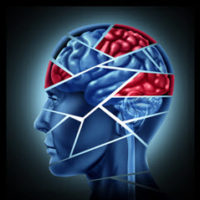The Basics Of Traumatic Brain Injury

Traumatic brain injuries (TBIs) are serious injuries that are vastly misunderstood. They occur when someone experiences blunt force trauma to the skull, as opposed to an internal problem or disease affecting the brain. While it is of course possible for these injuries to be self-inflicted, many do occur due to the negligence or recklessness of another person. If you have been through such an accident, it may be a good idea to contact an attorney and seek compensation for your medical bills.
Many Different Symptoms and Causes
Traumatic brain injury is always caused by trauma to the skull or brain (either blunt trauma, or involving a piercing object like a bullet), but there are multiple types of trauma, and multiple places that trauma can impact, causing different TBIs with different symptoms. Causes are innumerable: falls, auto accidents, full contact sports, and freak accidents are all equally capable of causing a TBI, especially if one or both people involved in the situation are not exercising due care.
Regarding symptoms, something that many are unaware of as well is that some symptoms do not show up right away, even in a very serious injury. Warning signs of a TBI can be physical, mental or cognitive, regardless of the degree of trauma. Some of the most common signs include:
- Classic signs of head trauma such as headaches, confusion, or difficulty speaking;
- Fatigue and/or difficulty sleeping;
- Nausea, vomiting or other signs of intestinal distress;
- Dizziness or loss of one’s balance;
- Light or sound sensitivity; and
- Unusual mood changes or mood swings, especially if depressive or anxious.
In particularly severe TBIs one can also see pupils wrongly dilated (that is, one more dilated than the other), agitation or combativeness, and convulsions or seizures.
Seeking Compensation
If you believe you have been harmed by someone else’s negligence, it is important to keep in mind that numerous myths about brain injuries abound – for example, some people, even medical professionals, may tell you that you cannot have a TBI if you did not lose consciousness. This is simply not the case. You can still bring suit for your injuries even if you did not sustain a TBI, but do not be swayed into thinking it is not until you have been evaluated by multiple professionals.
Be advised that Florida does have what is called a contributory negligence statute, meaning that your percentage of fault will lower the amount you recover – though it does not bar recovery. For example, if you are deemed to be 30 percent at fault for your own TBI, you would receive 30 percent less compensation than you would if you were deemed wholly innocent. A jury may still find in your favor, but you would receive a smaller award. The distinction is fine, but important.
Contact An Experienced Professional Today
A traumatic brain injury can be a life-changing experience, and it is imperative that you have the best help you can find to make it through. Our zealous Tampa brain injury lawyers will fight for you and ensure that your focus can be on recovery as much as possible. Contact us today at 813-831-9999 to set up an appointment. We are happy to try and assist you with your case.
Resource:
mayoclinic.org/diseases-conditions/traumatic-brain-injury/symptoms-causes/syc-20378557
